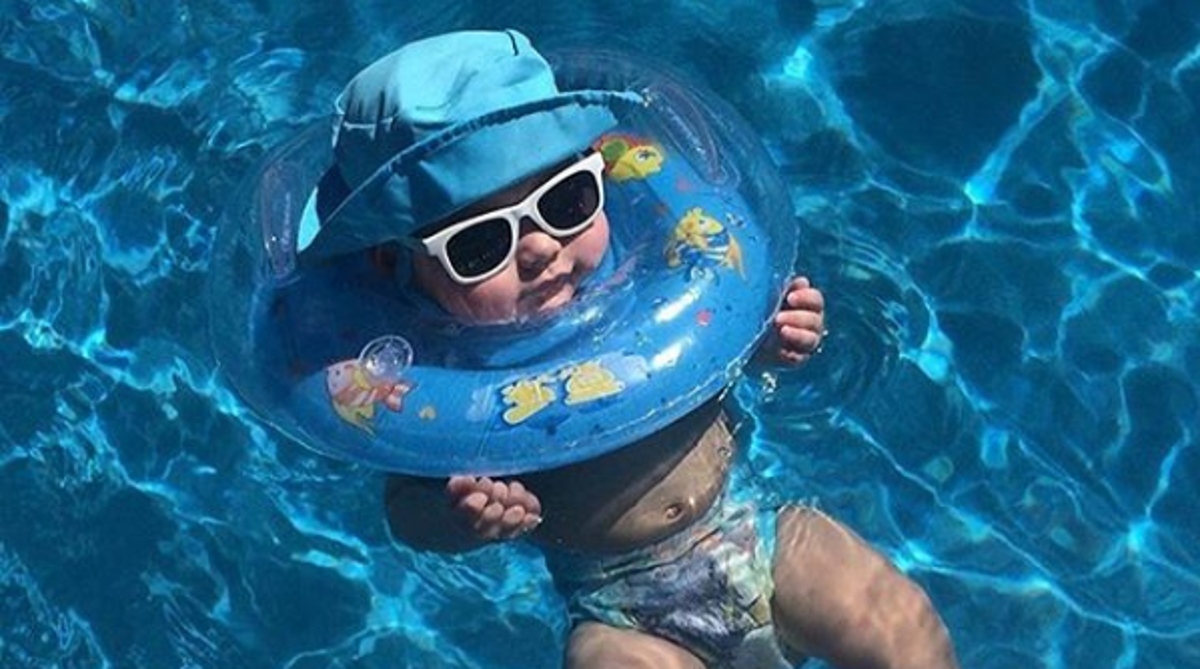
The US Food and Drug Administration (FDA) has warned about the potential dangers of using baby neck floats for performing water therapy on children, especially if they have special needs.
Experts have for years warned of the dangers of using baby neck floats – defined by the FDA as inflatable plastic rings worn around the neck that allow children to float freely in water – as well.
On Tuesday, the agency released a safety communication statement which warned the “safety and effectiveness of neck floats to build strength, to promote motor development or as a physical therapy tool, have not been established.”
“The use of these products can lead to death or serious injury,” it said.
The agency said the devices are sometimes marketed as water-therapy products for premature babies and babies as young as two weeks old and warned parents and caregivers as officials were “not aware of any demonstrated benefit” when used for such purposes.
“The use of these products, especially with babies with developmental delays or special needs, can lead to death or serious injury,” it said.
“Be aware that the use of neck floats in babies with special needs can lead to increased risk of neck strain and injury,” it added.
“Neck floats have not been evaluated by the FDA and we are not aware of any demonstrated benefit with the use of neck floats for water therapy interventions,” the communication further said.
The agency warned against the usage of the device for babies with “developmental delays or special needs, such as spina bifida, spinal muscular atrophy (SMA) type 1, Down syndrome, or cerebral palsy”.
The risks of using baby neck floats, the agency said “include death due to drowning and suffocation, strain, and injury to a baby’s neck.”
“Babies with special needs such as spina bifida or SMA Type 1 may be at an increased risk for serious injury.”
The agency highlighted the instances of one baby who died and another who was hospitalised after the use of the device.
In both cases, it said the babies were injured when their caregivers were not directly monitoring them.
“While the FDA believes that death or serious injury from neck floats is rare, health care providers, parents, and caregivers should be aware that these events can and do occur. It is also possible that some cases have not been reported to the FDA,” it said.
Experts have over the years questioned neck floats and weighed their potential danger to children.
In 2017, an expert had told The Independent how neck floats were “potential death traps”.
“Neck floats for babies scare me to death, and I hope they scare parents. These are potential death traps... To have your precious baby one poorly sealed seam away from going under at the pool is frightening,” Kyran Quinlan, former chair of the American Academy of Pediatrics (AAP) Council on Injury, Violence and Poison Prevention, had said.
AAP had already advised parents to avoid all air-filled flotation devices for babies and dismissed it as something that was “not a lifesaving device” and was “not designed to be”.
“The market will keep coming up with ways to float infants and adults and market them. This is not a lifesaving device, not designed to be. We consistently say anything inflatable is only a toy and can deflate,” Dr Linda Quan, an AAP spokesperson, told ABC News.
“No child should be unsupervised or left alone in the water, even with a personal flotation device or if wearing a US Coast Guard approved life jacket.”







